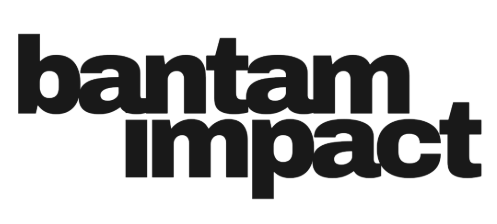Surviving Tariffs & Economic Strain: Strategic Insights for Employers
Mitigating Economic and Workplace Challenges Amid Tariff Shifts and Policy Changes is Key to Survival
The proposed tariffs by President-elect Donald Trump—25% increases on imports from Mexico and Canada, and additional 10% increase on goods from China—represent a significant policy shift that could ripple across industries, employee well-being, and workplace dynamics. These changes pose a unique challenge for organizations striving to maintain stability, productivity, and profitability. Experts at Bantam Impact Consulting offer insights into how businesses can proactively and reactively navigate these economic stressors, with a focus on employee well-being and dispute resolution.
The Immediate Economic Impact of Tariffs
Tariffs, as a tool of economic policy, are often justified as a means to boost domestic industries. However, the historical and projected impacts tell a more nuanced story. Studies show that past tariffs on Chinese imports resulted in a $500 annual cost increase for the average U.S. household (Brookings Institution, 2023). Additionally, a 0.4% rise in the Consumer Price Index during the 2018-2019 trade wars translated into higher prices on everyday goods, disproportionately burdening middle- and lower-income households (Federal Reserve Bank of San Francisco, 2022). This strain on consumer buying power inevitably bleeds into the workplace, as employees find their earnings stretched thin.
Economic Strain and Workplace Dynamics
Economic stress often manifests in the workplace, intensifying disputes and reducing overall productivity. A recent PwC Financial Wellness Survey (2022) revealed that 57% of employees experiencing financial stress also reported decreased work performance and increased absenteeism. Moreover, the American Psychological Association’s 2023 report found that employees facing economic challenges are 29% more likely to engage in workplace conflicts, adding another layer of complexity for employers navigating this turbulent economic climate.
These conflicts are not confined to interpersonal disputes; they also intersect with broader socio-political tensions. The Trump administration’s policies—especially those perceived to harm marginalized groups—may amplify workplace unrest, creating a fertile ground for disputes and potential incidents of workplace violence. Without robust systems for managing these tensions, businesses risk costly disruptions.
The Strategic Value of Mediation and Employee Well-Being Initiatives
Workplace mediation and alternative dispute resolution (ADR) methods offer powerful tools for addressing these challenges. Mediation resolves disputes efficiently—studies indicate that it is effective in 80% of cases and significantly reduces costs compared to litigation, often by 50%-80% (Cornell University ILR School). Beyond cost savings, mediation preserves workplace relationships, fosters trust, and improves employee retention (SHRM, 2022).
Organizations that prioritize employee well-being also see measurable benefits. According to WHO data, addressing stress and mental health issues in the workplace can mitigate the 25% global increase in anxiety and depression linked to economic downturns (2023). Investing in financial wellness programs and mental health resources not only alleviates employee stress but also strengthens organizational resilience during economic uncertainty.
Proactive and Reactive Strategies for Businesses
To adapt to these evolving dynamics, businesses must adopt both proactive and reactive strategies:
Proactive Measures
Employee Well-Being Programs: Implement financial literacy workshops, employee assistance programs, and stress management resources. These initiatives can mitigate the productivity losses associated with economic strain.
Workplace Mediation Training: Equip HR teams with mediation skills to address disputes early. Mediation not only resolves conflicts but also enhances communication and collaboration, reducing the likelihood of recurrence.
Policy Audits: Reevaluate workplace policies to ensure they align with inclusivity and equity, minimizing tensions exacerbated by socio-political divides.
Reactive Measures
Engaging Outside Consultants: Firms like Bantam Impact Consulting can provide expertise in dispute mediation and violence prevention. By deploying neutral third parties, organizations can address conflicts with impartiality and effectiveness, fostering a culture of fairness.
Real-Time Monitoring and Response: Establish protocols to identify and address potential conflicts before they escalate. This might include regular employee surveys or anonymous feedback channels.
Advantages of These Approaches
By implementing these strategies, businesses position themselves to navigate economic challenges while maintaining workplace harmony. Mediation reduces the financial and reputational costs of unresolved disputes, and well-being initiatives enhance employee satisfaction and retention. Furthermore, engaging external consultants like Bantam Impact Consulting ensures that organizations benefit from specialized expertise in conflict resolution and violence prevention, safeguarding both their workforce and their bottom line.
Bantam Impact Consulting offers certified workplace dispute resolution trainers who specialize in equipping employees and leaders with effective conflict resolution skills through tailored training and individualized coaching. Our programs focus on empowering employees to resolve their own disputes, which reduces the need for management intervention, minimizes costly legal conflicts, and prevents the escalation of tensions that could harm organizational reputation through public social media exposure. By fostering a culture of self-sufficiency and proactive communication, our approach not only strengthens internal relationships but also protects the organization’s external brand image. This proactive investment in conflict resolution creates measurable benefits, including higher employee morale, lower turnover, and enhanced workplace harmony, making Bantam Impact Consulting an invaluable partner in maintaining organizational resilience and public trust.
In a volatile economic and political landscape, businesses cannot afford to be reactive. By investing in proactive measures and leveraging expert guidance, organizations can weather the storms of policy shifts and economic strain, emerging stronger and more resilient.
* * *
Take advantage of our Winter Specials—including a range of workplace dispute management resources.


